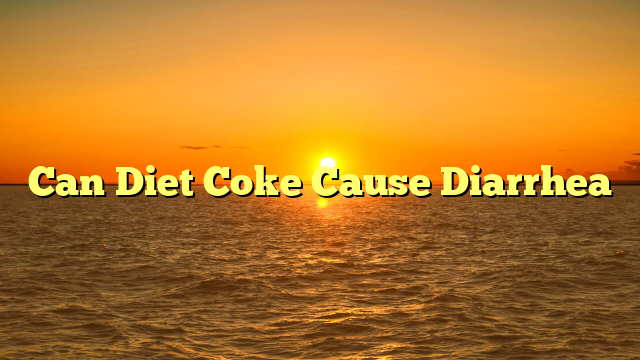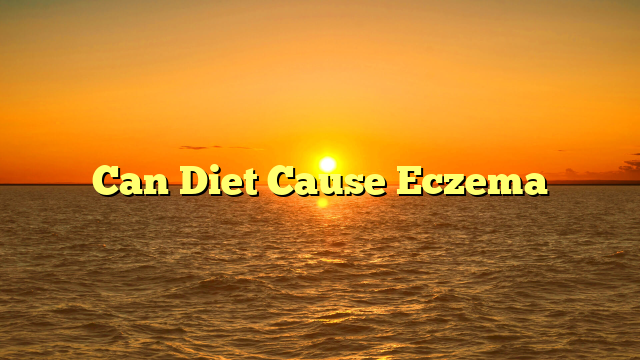Diet and Kidney Stones: Your Ultimate Guide to Prevention
Let’s explore diet and kidney stones. Are you concerned about kidney stones and looking for ways to prevent them? A healthy diet plays a crucial role in reducing the risk of kidney stone formation. By making some simple dietary changes, you can take control of your health and lower the chances of developing kidney stones.
One of the key factors in preventing kidney stones is staying hydrated. Health care professionals recommend drinking six to eight, 8-ounce glasses of water per day. This helps flush out toxins and prevents the build-up of minerals that can lead to stone formation.
The DASH (Dietary Approaches to Stop Hypertension) diet has also been shown to be effective in reducing the risk of kidney stones. This diet focuses on consuming fruits, vegetables, whole grains, lean proteins, and low-fat dairy products while limiting the intake of sodium, saturated fats, and added sugars.
It is important to maintain a healthy weight as obesity increases the risk of kidney stone formation. Additionally, dietary changes should be tailored to the type of kidney stone a person has. For example, individuals with calcium oxalate stones should reduce their intake of oxalate-rich foods like nuts, spinach, and wheat bran.
Consulting with a dietitian who specializes in kidney stone prevention can provide you with personalized meal plans and guidance to ensure you’re making the right choices for your health.
Diet and Kidney Stones Key Takeaways:
- Drinking enough water is crucial in preventing kidney stones.
- The DASH diet has been shown to reduce the risk of kidney stones.
- Maintaining a healthy weight is important in kidney stone prevention.
- Dietary changes should be based on the type of kidney stone a person has.
- Consulting with a dietitian specializing in kidney stone prevention can provide personalized meal plans.
Foods to Avoid with Kidney Stones
When it comes to managing kidney stones, making dietary changes is crucial. Certain foods can exacerbate the condition and should be avoided by individuals with kidney stones. These dietary modifications play a significant role in preventing kidney stone formation and recurrence.
“For individuals with calcium oxalate stones, it is recommended to avoid foods high in oxalate,” says Dr. Emily Johnson, a renowned nephrologist. “Foods such as nuts, peanuts, rhubarb, spinach, and wheat bran should be avoided or consumed in moderation.” These foods are rich in oxalate, a compound that can contribute to the formation of calcium oxalate stones.
Additionally, individuals with kidney stones should limit their sodium intake. “High sodium consumption can increase the risk of stone formation,” explains Dr. Johnson. This means avoiding canned, packaged, and fast foods, as well as condiments and seasonings high in sodium. Opting for fresh, whole foods and cooking meals at home can help reduce sodium intake.
Plant-Based Protein and Calcium Sources
Animal protein, including beef, chicken, pork, eggs, fish, shellfish, and dairy products, should also be limited for kidney stone patients. Dr. Johnson advises, “It’s important to focus on plant-based protein sources such as legumes, tofu, and tempeh.” These alternatives provide protein without the added risk of stone formation.
While calcium intake may seem counterintuitive for kidney stone prevention, it is essential to get enough calcium from low-oxalate, plant-based sources. Dr. Johnson recommends including calcium-fortified juices, cereals, vegetables, and beans in the diet. “Calcium binds with oxalate in the gut, preventing it from being absorbed into the bloodstream and potentially forming stones.”
By avoiding foods high in oxalate, limiting sodium and animal protein intake, and incorporating plant-based protein and calcium sources, individuals with kidney stones can make positive changes to their diet and reduce the risk of stone formation.
Diet and Lifestyle Tips for Preventing Kidney Stones
Preventing kidney stones goes beyond just dietary changes. Incorporating certain lifestyle modifications can also play a crucial role in reducing the risk of stone formation. Here are some kidney stone prevention tips and strategies to consider:
Diet and Kidney Stones Important Point: Stay Hydrated:
Drinking plenty of water is essential for preventing kidney stones. Aim to drink at least 8-10 glasses of water per day to maintain optimal hydration. Adequate water intake helps flush out toxins and dilutes substances that can contribute to the formation of kidney stones.
Boost Citrate Levels:
Citrate is a natural inhibitor of stone formation. Increasing citrate levels in the urine can help prevent the crystallization of minerals that form kidney stones. You can boost citrate levels by adding lemon juice to your water or drinking diluted orange juice.
“Regular hydration and increasing citrate levels can be effective strategies for kidney stone prevention.”
Watch Your Sodium Intake:
High sodium intake can lead to higher levels of calcium in the urine, increasing the risk of kidney stones. Avoid processed foods, canned goods, and excessive salt in your diet. Opt for fresh, whole foods and use herbs and spices to flavor your dishes instead of salt.
Manage Your Weight:
Obesity is a risk factor for kidney stones. Maintaining a healthy weight through regular exercise and a balanced diet can help reduce the likelihood of stone formation. Incorporate physical activity into your daily routine and focus on consuming nutrient-dense foods.
Consider Medication to help your Diet and Kidney Stones
In some cases, healthcare professionals may prescribe medication to prevent recurring kidney stones. These medications can help modify the chemical composition of urine or reduce the concentration of certain substances that contribute to stone formation. Consult with your doctor to determine if medication is necessary.

By implementing these diet and lifestyle recommendations, you can lower your risk of developing kidney stones. However, it is important to note that each individual’s needs may vary, and it is always best to consult with a healthcare professional for personalized advice and guidance.
Factors Affecting Kidney Stone Formation
The formation of kidney stones can be influenced by various factors, including genetic predisposition, certain health conditions, and dietary choices. Understanding these factors is crucial for effective prevention and management of kidney stones.
Genetic factors play a significant role in kidney stone formation. Individuals with a family history of kidney stones are at a higher risk of developing them themselves. This genetic predisposition can be attributed to certain inherited conditions that affect the way the body processes minerals, leading to the formation of stones.
“Genetic factors, such as a family history of kidney stones, can increase the risk of stone formation.”
In addition to genetics, certain health conditions and lifestyle choices can also contribute to kidney stone formation. Conditions such as obesity, gout, and diabetes can increase the likelihood of developing kidney stones. These conditions affect the body’s metabolism and urinary system, making stone formation more likely.
Dietary choices also play a significant role in kidney stone formation. Consuming excessive amounts of salt, animal protein, and oxalate-rich foods can increase the concentration of minerals in the urine, leading to the formation of stones. Inadequate water intake can also contribute to stone formation, as it reduces the body’s ability to flush out waste products effectively.
Risk Factors for Kidney Stones
Several risk factors increase an individual’s susceptibility to kidney stone formation. Middle-aged men are more prone to developing kidney stones, although they can occur in individuals of any age or sex. Other risk factors include a sedentary lifestyle, a history of previous kidney stones, and certain types of surgeries.
“Certain risk factors, such as middle age and a history of kidney stones, can increase the likelihood of stone formation.”
It is important to note that while these factors contribute to the formation of kidney stones, they do not guarantee their occurrence. Adopting a healthy lifestyle, managing underlying health conditions, and making dietary changes can significantly reduce the risk of kidney stone formation and promote overall well-being.

Diet and Kidney Stones Conclusion
Preventing kidney stones requires a multifaceted approach that includes both dietary and lifestyle changes. By adhering to a balanced diet low in sodium and oxalate, individuals can reduce their risk of developing kidney stones. It is crucial to drink an adequate amount of water and stay hydrated, as this helps flush out toxins and prevent stone formation.
Working with a healthcare professional and a dietitian who specializes in kidney stone prevention can provide personalized meal plans and guidance tailored to individual needs. These experts can help individuals understand their specific dietary requirements and make necessary adjustments to their eating habits. Additionally, managing weight and other health conditions, such as obesity and diabetes, is crucial in preventing kidney stones.
By implementing these dietary and lifestyle changes, individuals can significantly decrease their risk of developing kidney stones. These measures not only promote kidney health but also contribute to overall well-being. Remember to consult a healthcare professional for personalized advice and guidance on preventing kidney stones through diet and lifestyle modifications.
Diet and Kidney Stones FAQ’s
How much water should I drink to prevent kidney stones?
Health care professionals recommend consuming six to eight, 8-ounce glasses of water per day.
What is the DASH diet and how does it help prevent kidney stones?
The DASH diet has been shown to reduce the risk of kidney stones. It emphasizes consuming fruits, vegetables, whole grains, lean proteins, and low-fat dairy products.
How does weight affect the risk of developing kidney stones?
Being overweight increases the risk of kidney stones. It is important to maintain a healthy weight through diet and exercise.
What dietary changes should I make to prevent kidney stones?
Dietary changes should be based on the type of kidney stone. This may include reducing sodium, animal protein, calcium, or oxalate in the diet. Consulting with a dietitian specializing in kidney stone prevention can provide personalized meal plans.
What foods should I avoid if I have calcium oxalate stones?
Foods high in oxalate, such as nuts, peanuts, rhubarb, spinach, and wheat bran, should be avoided.
How can I reduce my sodium intake to prevent kidney stones?
Limiting canned, packaged, and fast foods, as well as condiments and seasonings high in sodium, can help reduce sodium intake and prevent kidney stones.
What foods should I limit if I have uric acid stones?
Individuals with uric acid stones should limit animal protein intake and focus on plant-based protein sources.
How can I increase citrate to prevent kidney stones?
Adding lemon juice to water or drinking diluted orange juice can increase citrate, a substance that prevents stone formation.
Does maintaining a healthy weight help prevent kidney stones?
Yes, maintaining a healthy weight through regular exercise and managing conditions like obesity and diabetes is crucial in preventing kidney stones.
Can medications be prescribed to prevent recurring kidney stones?
Yes, medications may be prescribed to prevent recurring kidney stones. It is important to consult with a healthcare professional for proper guidance.
What are the risk factors for developing kidney stones?
Some risk factors for developing kidney stones include obesity, gout, diabetes, certain kidney diseases, certain types of surgeries, and genetic predisposition.







